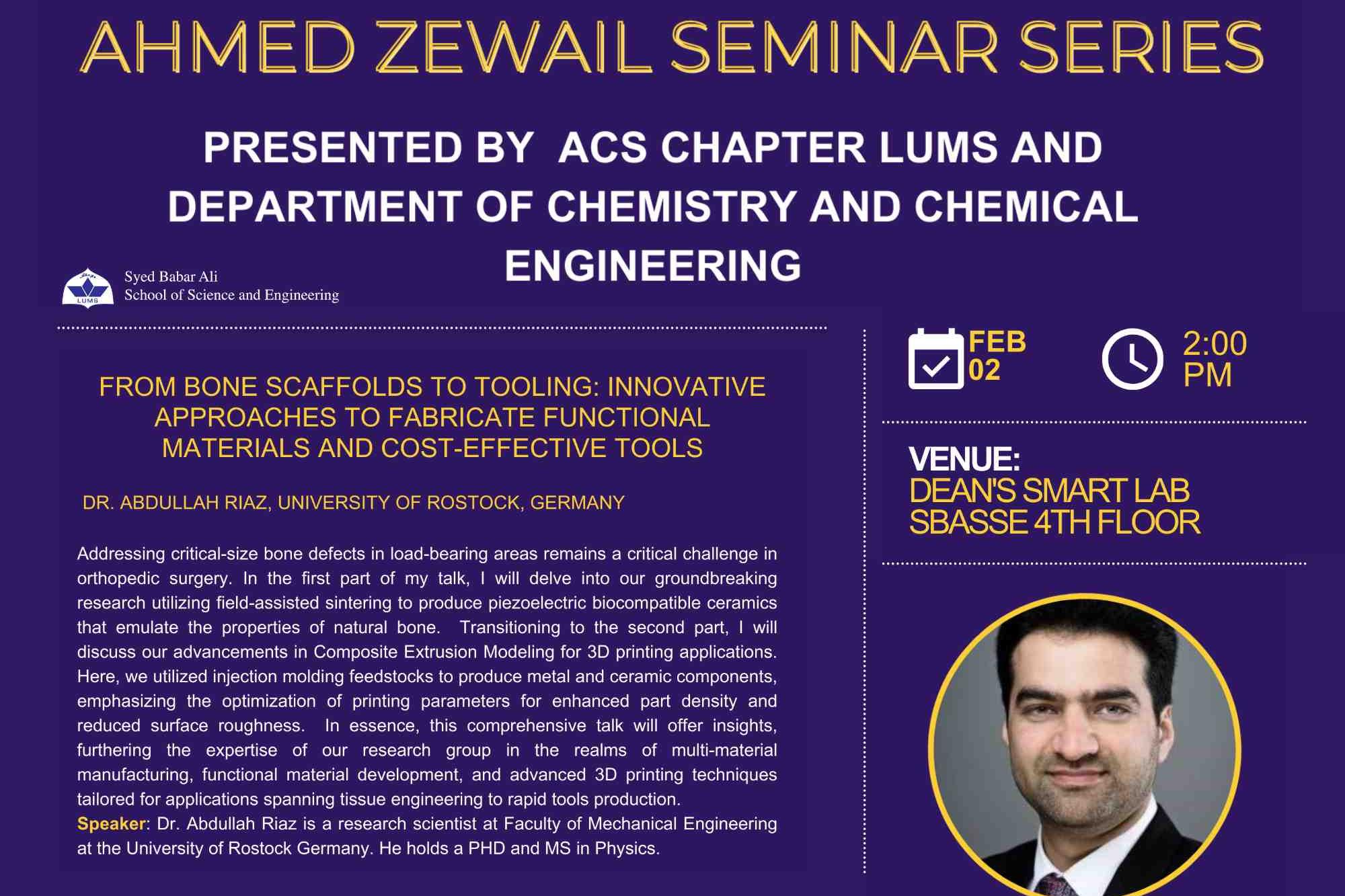
From bone scaffolds to tooling: Innovative approaches to fabricate functional materials and cost-effective tools
Abdullah Riaz studied Master of Science in Physics at University of Rostock with specialization in physics of nanomaterials and clusters. In his Master’s thesis he focused on the synthesis and characterization of bulk nanocrystalline Fe-Ni and amorphous Fe-Ni-Ta-B alloys for a potential applications as sensors and actuators in telecommunication and aeronautical industries.
Mr. Riaz worked as a research assistant in the group of Physics of New Materials at Institute of Physics, University of Rostock. He was involved in the development of 3D active implant prototype. During this time, he synthesized bulk nanostructured ceramics by conventional and Field Assisted Sintering Technique (FAST). He investigated ceramic materials and demonstrated that nanostructured bulk calcium titanate provides piezoelectric properties that resemble to the natural bone and allow faster integration of orthopedic implants into the bone. In January 2020 he received his PhD degree in experimental physics.
Since March 2020, Abdullah Riaz is a research scientist at the chair of microfluidics, University of Rostock. He is leading the research activities focused on sintering technology, the FAST sintering process. Dr. Riaz is also responsible for the development of a rapid tooling process to produce tools for the metal injection molding process by using an additive manufacturing process. He is also an associate scientist of the SFB ELAINE – Electrically Active Implants, which is a DFG collaborative research center that focuses on novel electrically active implants.

